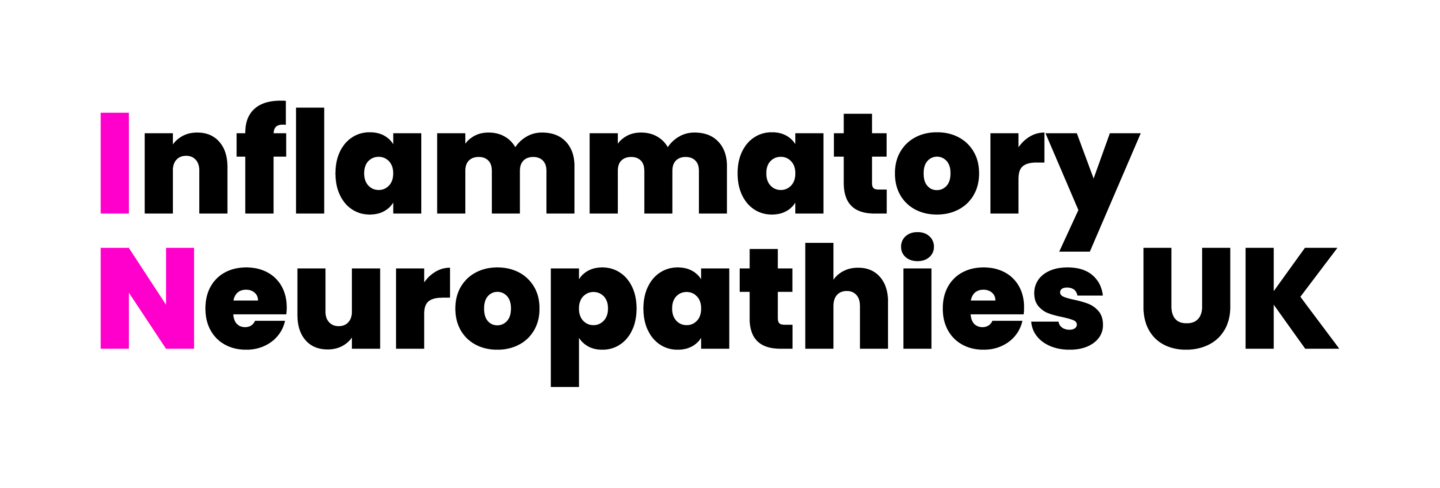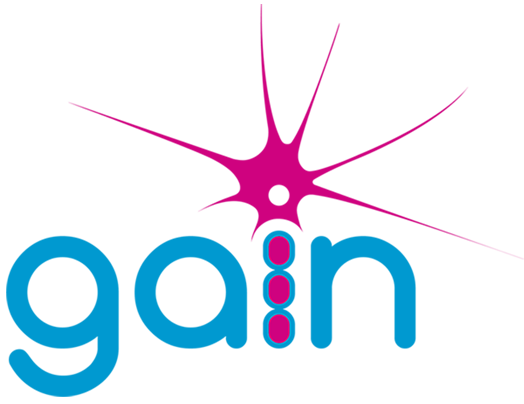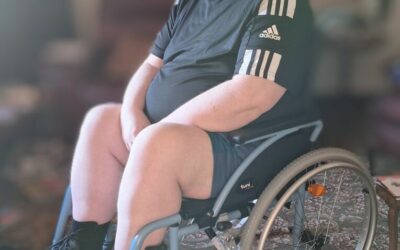Kate France shares her experience of getting her life back after a diagnosis of GBS in 2013, followed by a further diagnosis of CIDP when the symptoms returned two years later.
Like most people reading this magazine, I have a significant date. Actually, I have two, March 2013 and March 2015.
2013 was when after having a sore throat my legs began to stop working and I learnt what GBS was. I have read many people’s stories on the GAIN Facebook page and magazine, and realise that I was very lucky. My GP sent me to hospital, and I was diagnosed within a couple of days and started IVIG. I was out of hospital after 3 weeks, albeit in a wheelchair with my legs not working, but feeling extremely lucky.
I was working in Human Resources, so was responsible for the working lives of my colleagues. Through my work I had supported many people dealing with a variety of illnesses and personal challenges, but when it is your turn, things are very different. It was hard to accept that i couldn’t work and not know how long it will take to recover, and how good the recovery will be, is really hard mentally. My first step with this new reality was asking my boss to remove a banana from my desk drawer. I figured it was going to be in a very bad state by the time I would be back in the office!
My boss was keen to visit me, not to check up, but to reassure me that everyone was thinking of me. I had to be strong and say no. I wasn’t ready to see anyone, as it took all my energy and mental capacity to fight the illness. It was hard to say no to my boss, but I knew I had to. Thankfully, she understood.
From my experience in HR, I knew that often the people we work with, colleagues, managers, HR want to do the right thing, but don’t know what the right thing for someone else. So, learning to say what support you need is essential, but very difficult.
Fast forward almost 3 months and a conversation with my husband really stands out for me. He took a deep breath and told me he was coping fine with the physical side of supporting me, but was struggling with the emotional. He missed “me”, the strong minded, independent thinking person. I had lost my confidence.
Everyday things felt really scary – getting a taxi to the physio on my own felt huge. it is unbelievable now to think that such a small thing was so terrifying, but I had to do it. So we did a trial run, to check if I could walk through the hospital on my crutches, and I did it. So, whilst I was still scared, I knew it was something I had to do. I was determined, and focused on doing my exercises and progressing physically, but clearly mentally I was not where I needed to be. We chatted this through, and I realised that I had felt like a burden physically, so had subconsciously wanted to be the least trouble I could be, so I stopped having opinions and making decisions, not realising this just added to the pressure.
This also made me confront that I was putting obstacles in the way of returning to work.
I had a huge list of all the reasons it wasn’t possible. I was still scared I wasn’t the same person; would I still be able to do my job? I gradually realised that returning to work was a key part of my mental recovery. So, we made a list of all of the physical obstacles and met with my boss to talk them through.
My office was upstairs and there was no lift, so work moved my office downstairs. I could only walk short distances on crutches, so I took my wheelchair to work and my colleagues helped wheel me around, and made sure I had cups of tea. Perhaps the hardest one, was my embarrassment at needing a frame in the bathroom to help me stand up, but gain this was resolved. I had a designated cubicle! My boss and my colleagues were amazing, no one could do enough to help.
It was incredibly hard to ask for help initially, and to accept that my needs were different, but with my husband’s support I knew it was the only way I find “me” again. I worked a couple of days a week from the office and some days from home and gradually built up my physical and mental health. The difference it made was huge. By the end of 2013 I physically back to normal. As I said before I was very lucky! 2014 was an uneventful year oh apart from changing jobs in the September following redundancy.
Then came March 2015, 6 months into my new job when the pins and needles/numbness started to come back in my feet, then my hands and arms, but slowly this time, just very gradually getting a bit worse. It took a few months this time to get a nerve conduction test and the diagnosis of CIDP.
I had already read the GAIN information, as I had had my suspicions, but as we know we are all different, so I had no idea what would happen to me and how it would happen to me and how it would progress. I had however learnt a lot from my GBS experience, and was able to think clearly about work. I knew that I needed to keep my employer informed, help them understand the diagnosis and be prepared for whatever may come.
It has been very strange being on the other side, so to speak. I had many of the concerns that I am sure everyone has, but being in HR I had worked hard to create an environment where people would feel supported and could be open about their challenges, but when it was my turn it was not easy.
“I knew the stick made me stand out and I hated the attention it brought. There was no hiding the stick though, so I found one I loved.”
With GBS it was so sudden and immediately debilitating there was no option but to tell my employer, with CIDP it felt like more of a choice, and knowing it was long term I worried how it would affect how people saw me, and my ability to do my job. I thought about as a HR professional what would I say to a colleague in the same position and realised that I was going on a journey that I was going to need work to support me with. As I mentioned earlier, I also knew that work would need me to guide them in what support I needed.
I printed off the GAIN info on CIDP, gave it to my boss and my team, and when they had had a chance to read it, I talked to them about how it was affecting me, and also about the uncertainty for the future. This made it so much easier to talk about things as my needs changed. I thought I could work from home while having IVIG – I was wrong – I was exhausted.
For future sessions we are able to plan my work around it – working more flexibly. I started to need a walking stick and I was extremely self-conscious about it. I could walk without a stick but found it exhausting and the stick helped me go further and reduced how tired I was so I could focus better. I knew the stick made me stand out and I hated the attention it brought. There was no hiding the stick though, so I found one I loved, a really unusual shaped wooden one – so when people saw the stick, they commented how lovely it was – this somehow made me feel less self-conscious! It did have its downside when on holiday a large dog nearly ran off with it!
One plus side of the stick making the disability visible was I got offered seats on trains and tubes which I needed but wouldn’t have asked for! I found it hard to stand still in one place so needed to lean or sit – people at work knew this so made sure there was a chair.
I knew everyone’s experience is very different, I was initially taking steroids and my CIDP is now under control with azathioprine. I made sure work knew when my medication was changing so any side effects were understand. I don’t need my stick at the moment, I still struggle standing still but all that means is I have to sit not stand at concerts and I’ve not risked a festival yet. I have strange sensations – mainly in my face when I’m tired but these just remind me how lucky I am.
I have been able to help my employers understand the support I needed and in return have had amazing support. At times I felt I had to swallow my pride and ask for help, but I just asked myself if it was a colleague or friend, what would I want them to do. And in every case, I would want the opportunity to support them to be able to be their best. As a consequence, I have been able to continue to carry out my job and as I saw in an article by Michael Rosen talking about the impact of corona virus on him “I am different, not less“
I understand that not everyone will have the same experience with their employer, but you don’t know until you ask. Ultimately CIDP is a long term condition and for many would be classed as a disability (You are disabled under the Equality Act 2010 if you have a physical or mental impairment that has a ‘substantial’ and ‘long-term’ negative effect on your ability to do normal daily activities. Importantly, where the effect on your ability to do normal daily activities. Importantly, where the effect of the impairment is reduced or controlled by medication, medical treatment or an aid, its impact should be measured as it would be without such medication.) meaning that employers have a legal duty not to discriminate against you and to make reasonable adjustments. This applies when you are seeking employment as well as when you are employed.
It can be hard to recognise what a reasonable adjustment might be for you, there is some great information on the citizens advice website. Search for “Asking your employer for changes to help you if you’re disabled”
Also think about who at work can you talk to – is it a manager, is it HR, do you have an occupational health person, or it could be Health and Safety. A good starting point may be to find your work policy on absence. If you are off work this will help you make sure you know what work expects and what you can expect e.g. how often you need to make contact, who to send your Fit note to, can you expect a long term sickness home visit, will they refer you to occupational health or ask for your permission to write to your doctor or neurologist. It can be hard to recognise what a reasonable adjustment might be for you, there is some great information on the citizens advice website. Search for “Asking your employer for changes to help you if you’re disabled”.
Some people may be worried that work will pressurise them into returning too soon, others may worry that work will not want them back. Either way it is important to be prepared.
Once you return to work you may need ongoing support that may change as your condition changes. At work we had a health passport that enabled people to create a record that explained their condition, what a good day looked like for them versus a bad day, and what support they needed. You created and owned your own document, and you chose who to share it with.
This meant that if you changed manager you could give them the passport, rather than having to “go through it all again”
Team building event – “I wanted to take part, so at each activity I found a part I could play. On this one I was the stranded pilot that the team had to winch over. It was a race and as an example of not being treated differently they elected that winning was the most important thing, so rather than lift me up and winch me over they just dragged me through the water!!”
Most employers will want to work with their colleagues to enable them to work to the best of their ability. Citizens Advice also gives information on what to do if you are not getting support from your employer
I know that my experiences have made me more understanding about how difficult it can be to open up, and also that it is not a one off conversation. My needs change and sometimes people can forget that I have different needs.
I take this as a positive; they are not seeing my disability, they just see me and the work I am doing, so if I need to, I remind them. I genuinely appreciate it when people unexpectedly might just check in – wanting to know if I am OK – really wanting to know!
As I said at the start, I know I have been lucky with my condition and with my employers. If you are struggling either at work or with taking steps to get back to work you are not alone, there are people who can help, and getting in touch with GAIN is a good place to start.
For full disclosure, I’m not working at the moment but that is a conscious decision to take some time out following taking redundancy as my role relocated.




